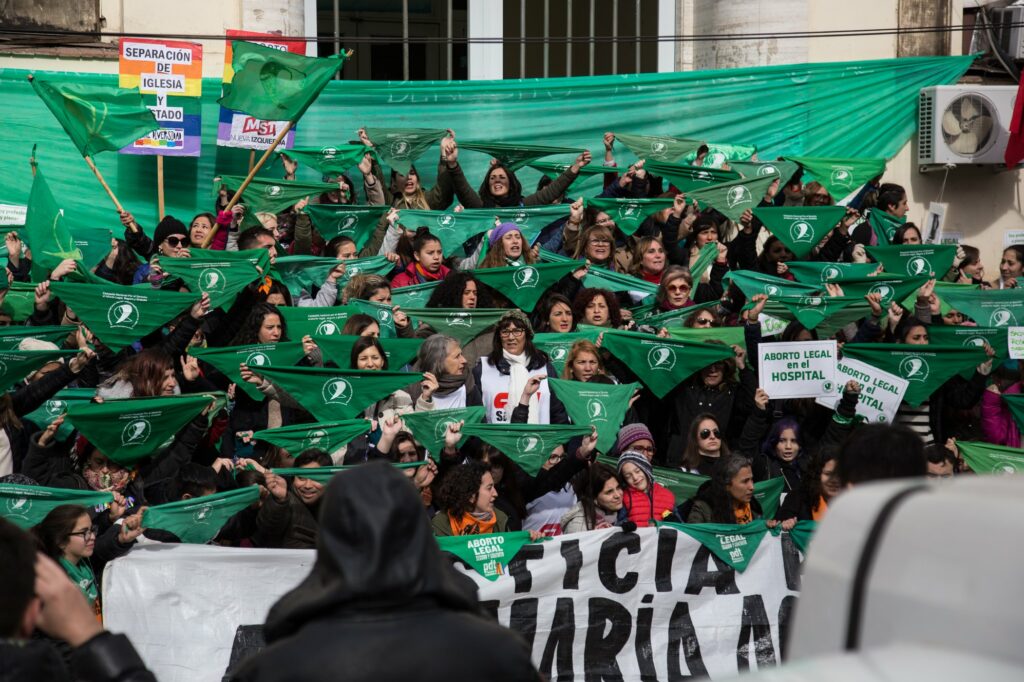Two years after having rejected it, Argentina’s Senate passed a bill legalizing abortion on December 30, 2020. A decision met with cheers and joy by the pro-choice crowd, celebrating a decisive victory, but keeping a cautious eye on how this new right will be put into practice in a strongly Catholic country.

The lower house greenlit the bill to legalize abortion in Argentina, and it came to the Senate. With 38 votes in favour and 29 against, it ultimately granted the right for every Argentinian to have an abortion up to the fourteenth week of pregnancy.
Dressed in green, proponents of the bill took to the streets of Buenos Aires to celebrate this historical win. Over the past century, Argentina, a stronghold of Catholicism, has authorized abortion only in cases of rape or if the mother’s life was in danger. Each year, between 370,000 and 520,000 illegal abortions are performed in a country with a population of 44 million inhabitants. Some 38,000 people per year were because due to complications which followed these unsafe abortions.
The christian and center-left President Alberto Fernandez backed the bill, which had come seven votes short of passing in 2018. During his presidential campaign, he promised to launch a “serious and responsible debate on this public health issue”, putting the spotlight back on a topic which has polarized Argentina for past decades.
A November poll found that only 27% of the population supported the proposition, a broad opposition which can be traced back to the lasting influence of religion in the country (62% of the population identifies as Catholic, 15.3% as evangelical, according to a 2019 government poll.) Pope Francis, an Argentinian himself with a strong influence on his religious community, has long taken an anti-abortion stance, likening an interrupted pregnancy to hiring a “hitman.”
To convince the conservative majority in the Senate, the government included a conscientious objector clause, granting medical professionals the right to refuse to take part in abortion procedures. Though each person will now have the right to a free and legal abortion, practitioners and clinics are entitled to object, in which case they must nonetheless refer the patient to another healthcare professional.
The National Campaign for Legal, Safe and Free Abortion, an alliance formed by 250 NGOs, warned that “when it comes to sexual and reproductive rights, this is an obstacle for women’s rights, as we know that in countries where conscientious objection is allowed, women face great difficulties to have access to an abortion.”
Pauline Achard, Victor Goury-Laffont, Laura Le Strat, Jeanne Maisiat, Marie Montels, Anastasia Nicolas
